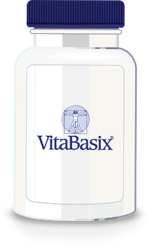Approximately one in eight people will suffer from a mood disorder in their lifetime. Sufferers may experience a range of emotional and physical symptoms.
The causes of mood disorders are diverse and complex and are primarily related to genetic predisposition, certain psychological factors and neuro-physiological changes. The latter are characterised by changes in the balance of certain neurotransmitters, i.e. the messenger substances responsible for signal transmission between nerve cells.
Various nutrients can have a positive effect on the nervous system and general state of mind by maintaining the balance of the different neurotransmitters:
Griffonia Simplicifolia: This is a plant species from the legume family in the subfamily of the papilionaceous plants. It serves as a natural source of 5-Hytroxytrpyptophan, from which the body can later produce serotonin itself. Serotonin is an important neurotransmitter for normal brain and nerve function, and is also popularly known as the happiness hormone.
L-phenylalanine: This essential amino acid is considered the most important precursor of various catecholamines such as dopamine, adrenaline and noradrenaline. In addition, phenylalanine is converted in the brain to phenylethylamine, a naturally occurring messenger substance that contributes to the maintenance of a normal mood.
St. John’s wort extract is one of the oldest known remedies for the treatment of mood disorders.
Other important micronutrients to support the brain and mood are magnesium, vitamin B6, niacin, niacinamide and calcium. These are also found in many plant and animal foods. Vitamin B3 (niacin), B6 and magnesium contribute, among other things, to a normal function of the nervous system as well as to a normal mental function. Calcium also plays a role in the process of cell division and specialisation as well as signal transmission.



 Chronobrands
Chronobrands



Reviews
There are no reviews yet.